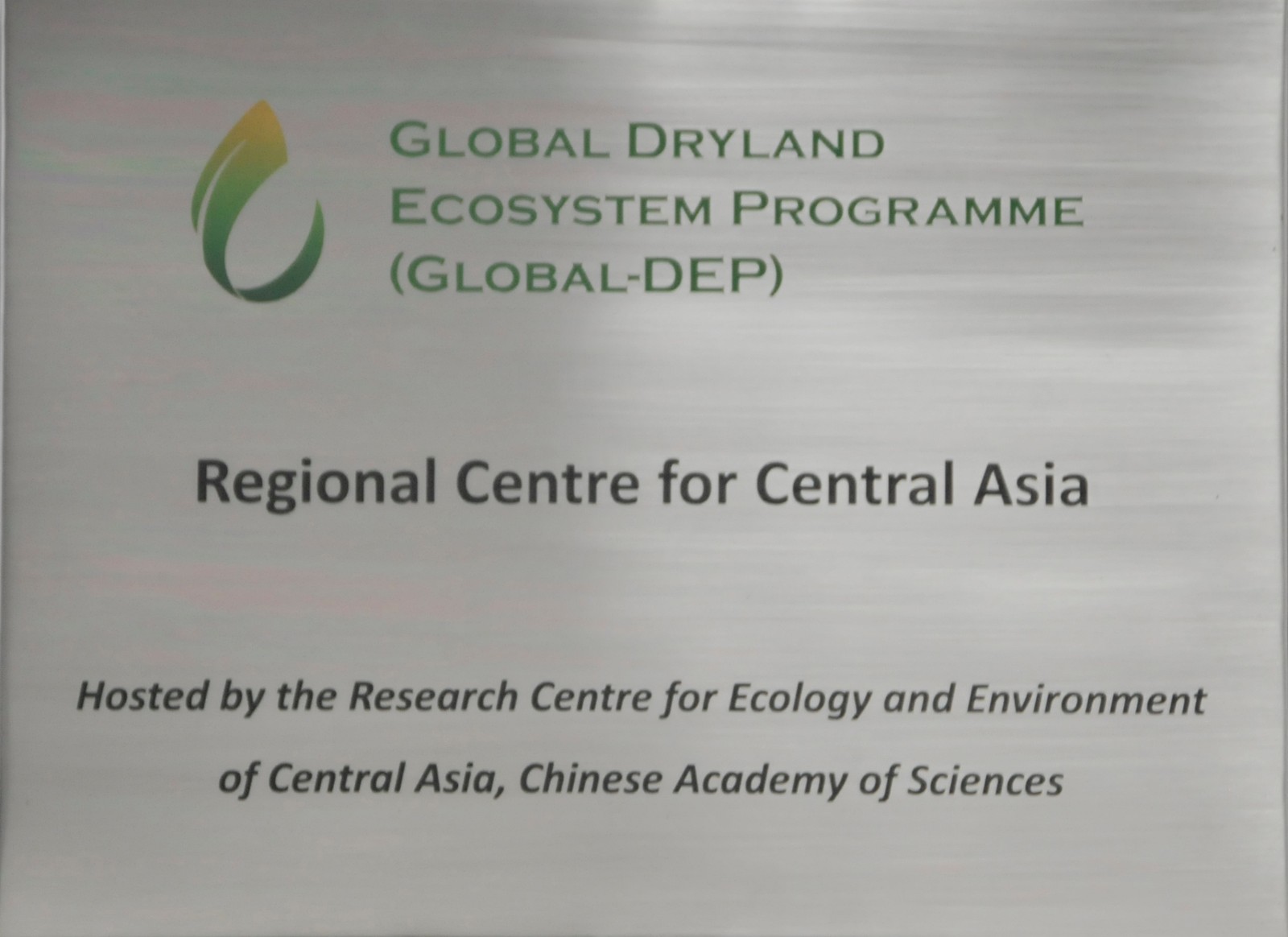RCEECA becomes the Regional Centre of Global-DEP
Between October 19th and 20th, 2019, at the second work conference of the Global Dryland Ecosystem Programme held in Xi’an, the Research Center for Ecology and Environment of Central Asia (RCEECA) became the Regional Centre for Central Asia of the Global Dryland Ecosystem Programme (Global-DEP) and was awarded by Academician Fu Bojie of Chinese Academy of Sciences and Professor Mark Stafford Smith from Australia.
Global Dryland Ecosystem Programme (Global-DEP) is an international cooperation program jointly initiated by Academician Fu Bojie and Professor Mark Stafford Smith. Its scientific objective is to develop a scientific program and execution plan covering the research priorities and key scientific problems of global dryland ecosystem and to provide a global cooperation platform for dryland ecosystem research. The program features a close combination of dynamic changes in ecosystem structures and functions with ecosystem services, sustainable management and human well-being on a global or regional scale. In terms of the method, it combines remote sensing data, ecosystem monitoring data, field investigation data and case studies together, hoping to closely integrating research and application, research and decision-making. The program conducts case studies in typical arid areas in Central Asia, Mediterranean, Africa, North America and Australia.
The area of dryland in the world is 51 million square kilometers, accounting for 41% of the world’s land area. Approximately 38% of the world’s population live in and 1/3 of the world’s biodiversity protection hotspots are distributed in arid areas, which also provide habitat for 28% of endangered species. However, at the same time, about 10%-20% of the world’s dryland is degrading. Due to the climate change and the great impact caused by improper human activities, dryland becomes one of the most sensitive and vulnerable ecosystems on the earth’s surface.
Since its establishment in 2013, RCEECA has built 3 overseas branches, 3 joint laboratories and 3 information centers, 4 experimental & demonstrative sites on ecosystem management and modern agro-tech and the Central Asia Ecosystem Research Network (CAERN). The network consists of 15 field observation and research stations by different gradients on moisture and temperature along the Altai Mountains, the north slope and south slope of Tianshan Mountains and Pamirs, covering various ecosystem such as glacier, mountain, forest, pasture, oasis farmland, wetland and desert. The above well-prepared research platforms and perfect field monitoring network will support and guarantee the research work of Global-DEP in Central Asia region.

Regional Centre for Central Asia

